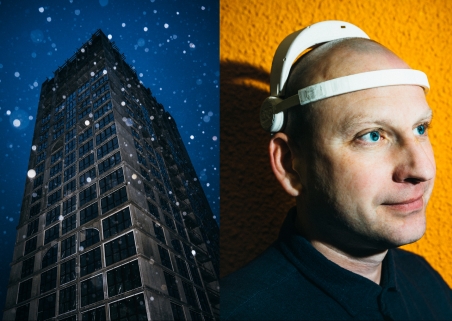Rezension: Russischer intellektueller Antisemitismus (engl.)
In scholarly publications on contemporary political ideas, ultranationalist discourse is often not taken very seriously. Extreme particularism is, perhaps, seen as a legitimate subject of research, but rarely perceived as a debate in which liberal academics should engage. That seems even more so the case in relation to contemporary Russia. Whereas Western liberal publicists studying Western politics can sometimes not avoid replying to publications of extremely right-wing intellectuals because they may be their colleagues at universities, professional organizations, or editorial boards, Western Russianists only rarely encounter Russian proto-fascist thinkers. A consolidated home-grown Russian community of liberal social scientists and publicists that could reply effectively to extremely right-wing criticism of liberal democracy, on the other hand, does not yet exist. It seems, moreover, that some Western observers of Russia who cannot help coming across the numerous publications of the Russian “lunatic fringe” find the fundamentalist, racist, and conspirological ideas developed there to be too esoteric, abstruse and pathological to deserve serious attention. Sometimes, intellectual proto-fascism is not even acknowledged as a fully relevant subject for advanced scholarly research, smiled upon, or understood as the sole domain of literary criticism and cultural studies, but not as a subject of serious political science.
This state of affairs is, with regard to Russia, in so far regrettable as a number of post-Soviet extremely right-wing publicists rank socially higher, and are more widely read than their equivalents in the West, as well as their liberal adversaries in Russia. Three examples taken from Vadim Rossman’s book may suffice to illustrate the point:
The late Metropolitan of St. Petersburg and Ladoga Ioann (Ivan Snychev, 1927-1995), one of the most paranoid and rabidly anti-Western publicists of early post-Soviet Russia, was, until his death, the number two in the hierarchy of the Russian Orthodox Church.
The ethnographer Lev N. Gumilev (son of Nikolai Gumilev and Anna Achmatova, 1912-1992), who speculated about biological differences between ethnic groups as results of micro-mutations caused by cosmic emissions, is one of the most widely read “social scientists” in post-Soviet Russia. Recently, moreover, a newly founded elite university in Kazakhstan’s new capital Astana was named after Gumilev.
Aleksandr G. Dugin (b. 1962), Russia’s premier propagator of West European extremely right-wing ideas including the “Conservative Revolution,” “Geopolitics,” “Nouvelle Droite,” and even Nazism, has been an advisor to State Duma Speaker Gennadii Seleznev since 1998, and become an increasingly influential political commentator who regularly appears on prime time TV shows, and whose numerous publications, especially his “Foundations of Geopolitics,” are affirmatively quoted in prominent non-fascist publications.
Against this background, Vadim Rossman’s book is a rather valuable contribution. Not only does Rossman provide here the first comprehensive account of the whole spectrum post-Soviet intellectual anti-Semitism. He, in distinction to other authors in the field, takes the theories and concepts of the Russian publicists he analyzes seriously. He understands them as participants in a discourse to which he himself is a contributor, and thus actually replies to them. One would wish he had done so even more than he did.
The book is divided according to the taxonomy Rossman has developed to group the varieties of ultra-nationalist thought: “neo-Eurasianism” (conceptualized by Rossman as geopolitical antisemitism); Gumilev’s theory; “National Bolshevism;” “neo-Slavophilism;” “National Orthodoxy;” and biological racism referring to the “Aryan” myth. Though terminologically somewhat confusing, for the purpose of Rossman’s investigation, this conceptualization of the ideological spectrum seems to lead him to a rather useful classificatory scheme. It allows Rossman to systematically describe, analyze and criticize each major school in Russian post-Soviet ultra-nationalist thought neither ignoring any relevant approach, nor drowning in the hundreds of articles, brochures, periodicals, and books that constitute potential objects of his study. The ideas, theories and concepts introduced and criticized by Rossman are far too sophisticated and numerous to do them justice here. I shall mention thus only the few minor quarrels I have with the study.
Rossman’s extensive discussion of the philo- and antisemitic tendencies in pre-revolutionary Russian religious philosophy and Sergei Nilus is interesting, but, in this context, ultimately unnecessary. A short summary would have been sufficient.
Some of the relevant secondary literature is missing in Rossman’s bibliography (Matthias Messmer, Semyon Reznik, Michael Hagemeister, John B. Dunlop, Yitzhak Brudny, Wayne Allensworth, Hildegard Kochanek, Viacheslav Likhachëv, etc.). Also, in the last part of his study, Rossman makes a statement that I found debatable. Rossman writes:
Russia is a very heterogeneous country in terms of its racial composition, and thus, the use of racist rhetoric can compromise even the most well-established political parties. In addition, the historical memory of the Second World War makes citizens of the former Soviet Union hostile to any fascist ideology […]. (p. 256)
Though this is, perhaps at a first glance, a correct assessment, it might be misleading in two ways. First, it could be possible to classify Lev Gumilev’s theory of ethnogenesis conceptualizing ethnic or supra-ethnic groups as biological entities, and Russia-Eurasia as such a super-ethnos as a novel variety of racism. If so, racism – though certainly not its Nazi version – constitutes, as Rossman shows in his second chapter, a major intellectual movement in post-Soviet Russia.
Second, it seems too optimistic to assume a Russian hostility to “any kind” of fascist ideology. Certainly, Nazi ideas and symbols are rejected by most Russians; Italian Fascist ideology seems also discredited. However, new post-war ultra-nationalist ideologies avoiding Nazi rhetoric, and posing under such headings as “ethnic pluralism,” “Third Way,” or “traditionalism” may still qualify to be categorized as varieties of fascism (understood as a generic concept). All of the above critique is, however, ultimately inconsequential, and in no way questions the significance of Rossman’s contribution.
The one serious remark to be made concerns the publishers editorial work: There are dozens of misprints (especially in the endnotes), and an embarrassing succession of two versions of the same paragraph in the conclusions (p. 283).
Otherwise, however, this is an informative summary and critique of the most relevant anti-Semitic ideologies in Russia today, and excellent introduction to the subject. One hopes that it finds a wide readership not only among students of antisemitism and the history of ideas, but also among experts on international right-wing extremism and contemporary Russian politics and society.
Andreas Umland, Kyiv

